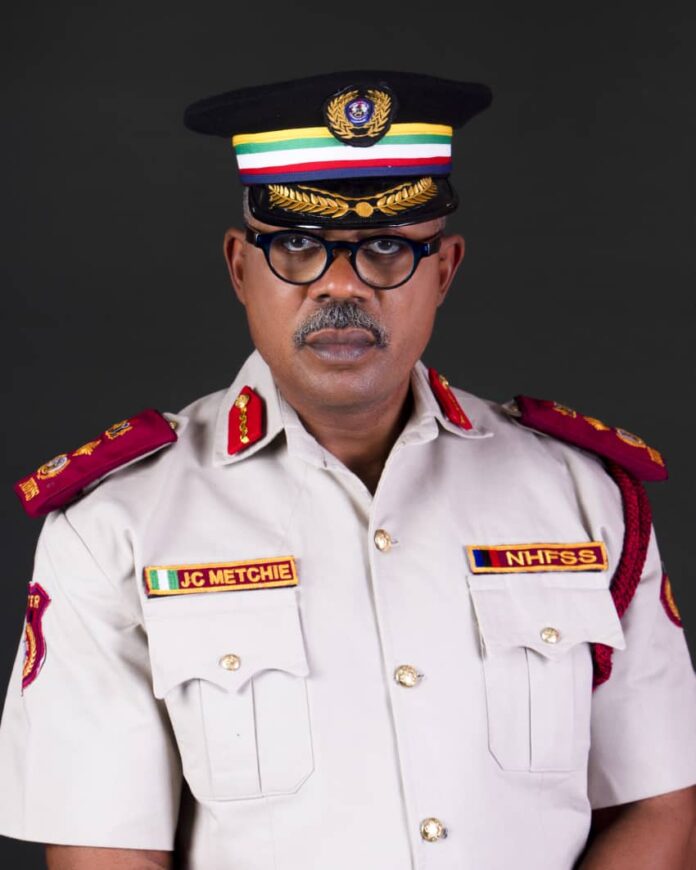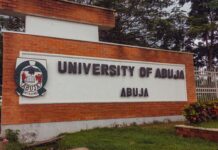Dr John Mecthie, the Deputy Commander-General (Intelligence), Nigerian Hunter and Forest Security Service (NHFSS), has called for transition of forest guards”
By Sumaila Ogbaje
Dr John Mecthie, the Deputy Commander-General (Intelligence), Nigerian Hunter and Forest Security Service (NHFSS), has called for transition of forest guards” into a National Security Service to strengthen the nation’s security.
Metchie, in an interview with newsmen on Monday in Abuja, said the transition of NHFSS into Nigeria Forest Guards Services (NFGS) would help to fight crimes effectively in ungoverned spaces.
He said it would serve as a potent panacea to tackling kidnapping, banditry, separatism, and other crimes perpetuated through forests, bushes, and related ungoverned territories.
According to him, the unscrupulous activities of hoodlums in and around ungoverned territories are militating against Nigeria’s economic development.
“Each time people are kidnapped and taken into the bushes, the nation continues to lose billions of naira and Foreign Direct Investments (FDI) due to bad image and negative reputation caused by insecurity”.
Metchie said that insecurity had led to many companies leaving the country while commending the Federal Government for adding greater impetus to the fight against insecurity in the country.
Metchie opposed the views conveyed by the Commandant-General of NSCDC, Dr Ahmed Audi, at a public hearing on the Bill to establish the Nigeria Mines Ranger Service in Abuja.
He said that Audi’s opposition to the establishment of a new security outfit in the country was not for the overall security well-being of the nation, adding that NSCDC was overwhelmed by its tasks.
“At this age and critical time in the history of our country, we should rise above personal sentiments, selfishness, and aggrandisement to make decisions that will be in the best interest of the nation and the nation only.
“There is a strong need for more hands to come into the security architecture of the nation.
“We should not sacrifice our motivation and opportunities to bring more hands on deck and to work to curb insecurity in Nigeria at the altar of personal interest and material gains.
“Opinion leaders have long identified the huge ungoverned territories as a major challenge in combating insecurity in Nigeria.
“These are mostly in the forests, bushes, deserts, as well as in creeks, swampy areas, and other difficult terrains that are unmanned due to inadequate capacity.
“This is the capacity and gap we as Forest Guards want to fill,” he said.
Metchie said that the Nigeria Forest Guards Services, which NHFSS was transitioning to, was the missing link, gap, and lacuna in Nigeria’s security architecture.
According to him, unless incorporated into national security, the challenges will continue to overwhelm Nigeria because of the security vulnerability in bushes, forests, and other ungoverned areas.
He added that the planned metamorphosis of NHFSS into NFGS would bring all ungoverned territories in the country under the sovereign control of the Federal Government of Nigeria.
Metchie said the service was structured so that its operatives exist at the grassroots among the people and work in very familiar terrain, such as bushes, forests, deserts, and creeks.
“NHFSS has a well-structured Management, Administrative, and Operations network in line with modern security architecture for the best global national security operations and services in ungoverned, unmanned difficult terrains.
“The familiarity of the environment and penetration of our officers and men to the deepest hinterlands in forest and bushes, as well as creeks, deserts, and other ungoverned areas of the country are what Nigeria needs to rout out criminals from these areas.
“With requisite Federal backing and provision of necessary security gadgets, our men will further leverage on the familiarity of terrain, our large numerical strength, experience, and grassroots spread to man all territories, including the very difficult terrains,’’ he added.
According to him, NHFSS has good relationships and strong collaboration with, not just the police, but also the National Drug Law and Enforcement Agency (NDLEA) and NSCDC. (NAN)




